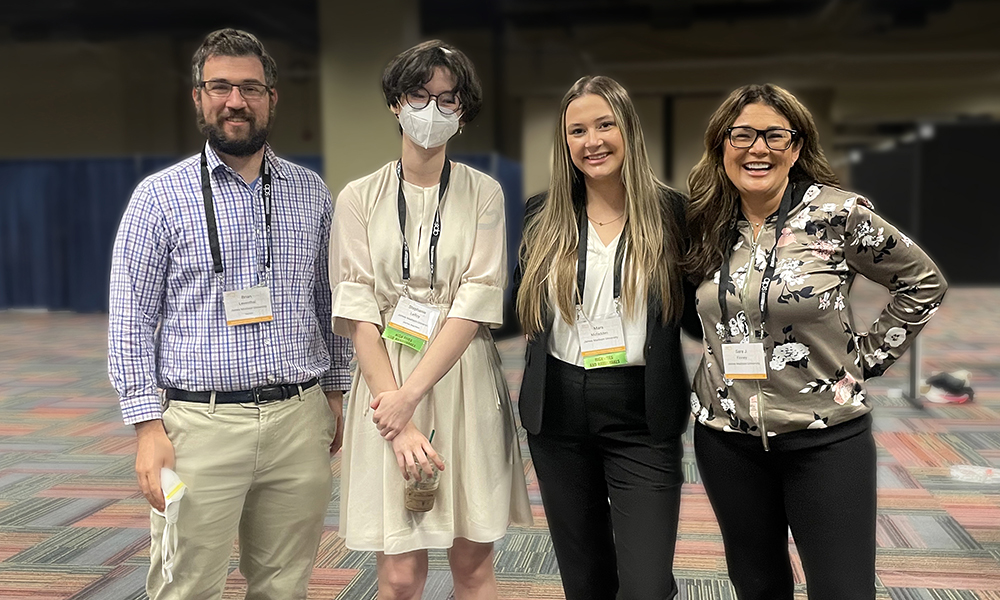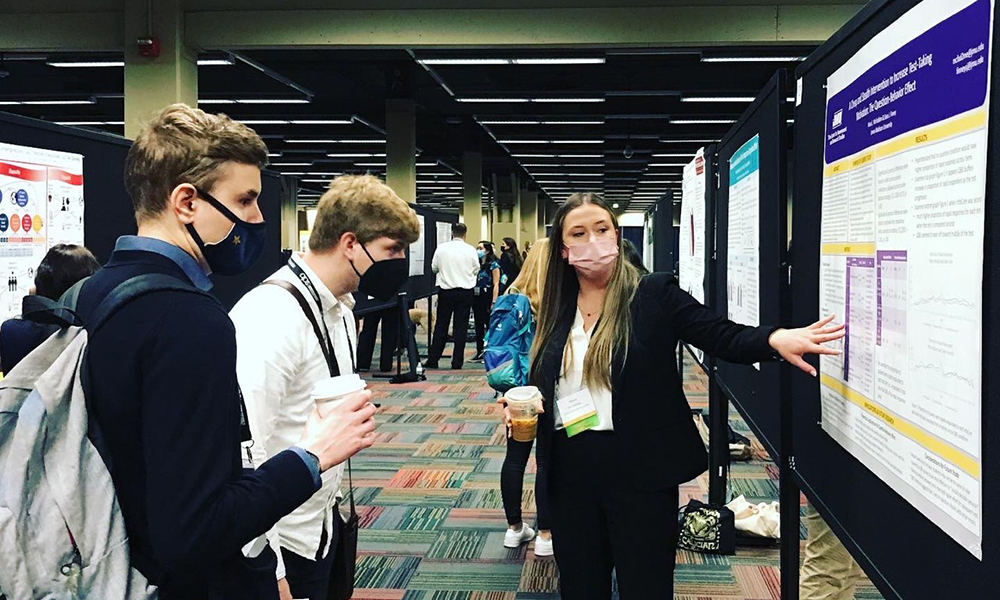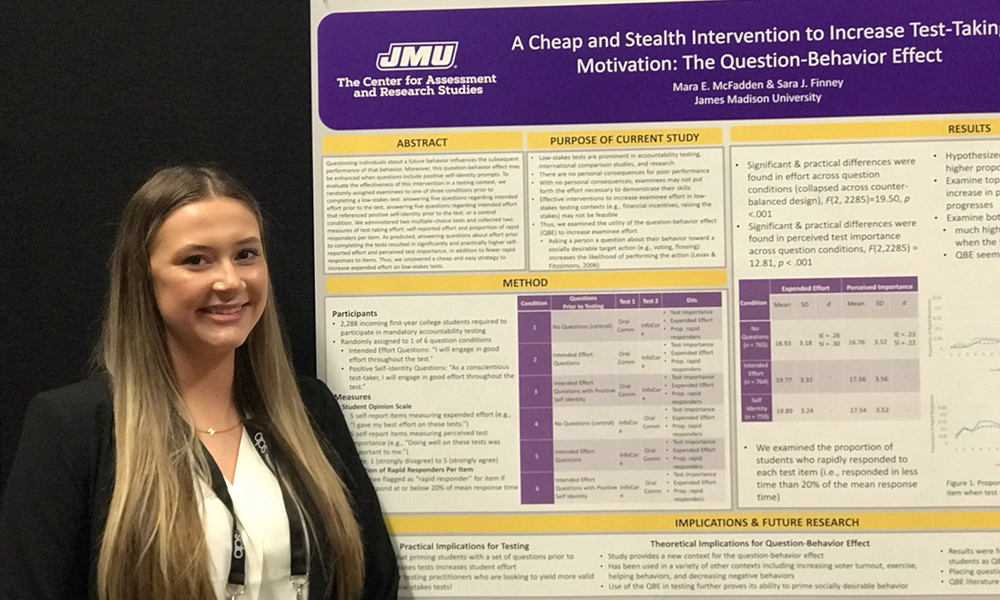Graduate psychology attends annual APS meeting
College of Health and Behavioral Studies
By: Graduate Psychology
In May 2022, faculty and students from the Assessment and Measurement PhD program and Psychological Sciences MA program attended and presented at the annual meeting of the Association for Psychological Sciences in Chicago, Illinois. Sara Finney, professor for the Assessment & Measurement PhD program and Psychological Sciences MA program, co-presented research she conducted with her first-year Psychological Sciences student Mara McFadden. Their empirical work was titled “A Cheap and Stealth Intervention to Increase Test-Taking Motivation: The Question-Behavior Effect”. Brian Leventhal, assistant professor for the Assessment & Measurement PhD program and Psychological Sciences MA program, co-authored research he conducted with his first-year Psychological Sciences student Stephanie LeRoy. Their empirical work was titled “Examining Response Styles Using Funnel Items”.

Both Finney and Leventhal also attended three sessions that will further contribute to their efforts toward Engaged Learning. Specifically, they developed a year-long deep, intentional, reflective learning experience focused on equity in assessment in 2021-2022. They were interested in improving this learning experience for 2022-2023 and thus sought out sessions in the domain. In the session “Antiracist Pedagogy Beyond 2020: Psychology as a Systems-Focused Discipline”, they learned how to enact antiracist pedagogies to dismantle racism. They were also provided resources in the form of podcasts and readings. In the session “Early Career Spotlight: Increasing Diversity in the Quant Pipeline”, they heard from others in the field who are struggling to recruit and retain students from diverse backgrounds. They learned of a Research Experience for Undergraduates (REU) grant to help expose students to the field of quantitative psychology. Finally, in the session “Teaching DEI Issues in the Workplace”, they were exposed to empirical research on the effectiveness of such trainings.
Stephanie LeRoy presented their poster titled “Examining Response Styles Using Funnel Items,” at APS to various scholars from around the world. During the first night, LeRoy attended the student social event and spoke with a handful of students about their research and graduate program. LeRoy shared their contact information with each student to answer questions about their conversations and to answer questions regarding graduate school. Poster sessions occurred on several occasions throughout the conference and LeRoy attended a handful to broaden their understanding of the research presented by other students and professors. LeRoy chose a diverse selection of sessions to attend that touch on various topics important in their field today. These sessions included topics such as police brutality, careers outside of academia, and applications of machine learning. LeRoy is grateful to have received a Student Diversity Registration Award that offered complimentary registration to the 2022 APS Annual Convention as they will long cherish their experiences and memories made at APS.

Mara McFadden presented her poster on test-taking motivation: McFadden, M.E. & Finney, S.J. (2022, May). A cheap and stealth intervention to increase test-taking motivation: The question-behavior effect. Poster presented at annual meeting of the Association for Psychological Sciences, Chicago. The abstract for her research is below:
Questioning individuals about a future behavior influences the subsequent performance of that behavior. Moreover, this question-behavior effect may be enhanced when questions include positive self-identity prompts. To evaluate the effectiveness of this intervention in a testing context, we randomly assigned examinees to one of three conditions prior to completing a low-stakes test: answering five questions regarding intended effort prior to the test, answering five questions regarding intended effort that referenced positive self-identity prior to the test, or a control condition. We administered two multiple-choice tests and collected two measures of test-taking effort: self-reported effort and proportion of rapid responders per item. As predicted, answering questions about effort prior to completing the tests resulted in significantly and practically higher self-reported effort and perceived test importance, in addition to fewer rapid responses to items. Thus, we uncovered a cheap and easy strategy to increase expended effort on low-stakes tests.

McFadden spoke with numerous scholars across the country about her work when they visited her poster. She also received multiple emails inquiring about her work following her presentation. McFadden met and discussed her research with Steven L. Wise, a well-known scholar on test-taking motivation. She has cited him numerous times in her current work. McFadden met with Craig Enders, a quantitative psychologist at the University of California, Los Angeles. She attended his workshop on missing data with an introduction to Bayesian estimation and multiple imputation.
